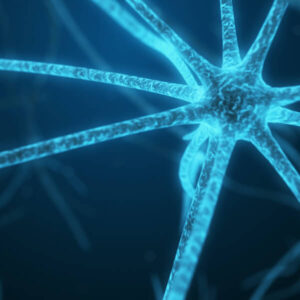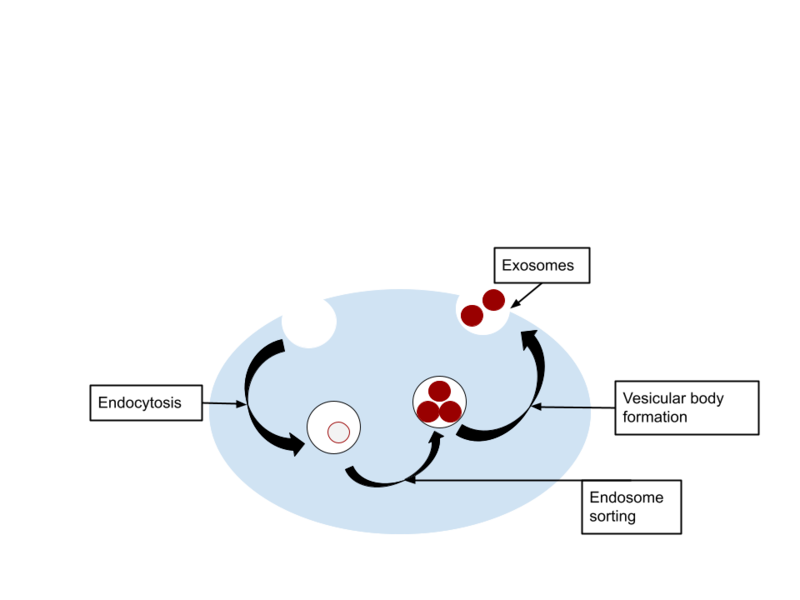At VitaLuxe Clinic, we're at the forefront of regenerative medicine, offering exosome therapy as a groundbreaking solution for various health conditions.
This innovative therapy uses the power of exosomes, tiny but mighty elements derived from stem cells, to promote healing and tissue regeneration.
Exosome therapy stands out in the realm of medical treatments for its ability to facilitate intercellular communication, crucial for efficient cellular function and repair.
By harnessing the inherent regenerative capabilities of exosomes, this therapy marks a significant advancement in treating a range of conditions from joint pain and autoimmune disorders to degenerative diseases.
What sets exosome therapy apart is its approach. Unlike traditional treatments that often focus on symptom management, our therapy aims to address the root cause of medical issues.
This method offers a personalized treatment strategy, using your body's own biological processes to encourage healing and recovery.
We are dedicated to providing our patients with the latest in medical science, combining cutting-edge technology with personalized care.
Our exosome therapy is tailored to meet the unique needs of each patient, ensuring the most effective treatment plan for optimal health outcomes.
How Exosome Therapy Works
Exosome therapy, a breakthrough in regenerative medicine, has garnered significant attention for its innovative approach to healing. This section explores the therapy from the vantage point of a patient, intertwining the medical science with personal experience.

Understanding the Science and Procedure
Exosome therapy begins with a comprehensive consultation, where the medical team assesses your health and discusses the potential benefits. The core of this therapy lies in harnessing extracellular vesicles, specifically derived exosomes, which are pivotal in cell-to-cell communication and gene expression regulation.
Patients learn that these exosomes, extracted from donor stem cells, are packed with beneficial molecules like growth factors and nucleic acids. They are introduced into the body to target specific cells, aiming to repair and regenerate damaged tissues.
The Patient's Journey During Treatment
The actual procedure is relatively straightforward and minimally invasive. As a patient, you'll find it akin to receiving an injection. The exosomes are precisely administered to the targeted area, where they start interacting with your cells. This process is designed to restore and rejuvenate damaged tissues at a cellular level.
During the therapy, you might feel slight discomfort, akin to any standard injection procedure. However, most patients report a smooth and uneventful experience. Post-treatment, you'll be under observation for a short period before you can resume your daily activities.
Clinical Trial Insights and Efficacy
While discussing the procedure, patients are also informed about the outcomes of various clinical trials. These trials showcase the efficacy of exosome therapy in treating a range of conditions, thereby bolstering patient confidence.
Personalized Care and Follow-up
After the procedure, the medical team provides personalized aftercare instructions. Follow-up appointments are scheduled to monitor progress and ensure optimal results. Patients are encouraged to report any changes or improvements they experience, contributing to a holistic understanding of the therapy’s impact.
Am I A Candidate for Exosome Therapy?
Exosome therapy, an advanced form of regenerative medicine, holds promise for a wide range of patients, particularly those battling chronic conditions. This section discusses the patient profiles that could significantly benefit from exosome therapy, exploring its therapeutic applications in various diseases.

Targeting Chronic Conditions and Degenerative Diseases
For patients grappling with chronic pain, inflammatory disorders, or degenerative diseases, exosome therapy offers a beacon of hope. By leveraging the regenerative capabilities of stem cells, this treatment aims to alleviate symptoms by repairing damaged tissues and restoring cells. It especially shows potential in conditions where traditional medical treatments have had limited success.
Harnessing the Power of Cells
Central to this therapy are the stem cells, which are the building blocks of regenerative therapies. These cells, obtained from various sources such as adipose tissue, are processed to derive exosomes. These exosomes, enriched with valuable lipids and genetic material, are then used to target specific cells in the body, promoting healing and tissue growth.
Cardiovascular and Neurological Disorders
Patients with cardiovascular diseases or neurological disorders may also find relief through exosome treatments. The therapy's ability to influence cellular behavior and promote tissue repair can be crucial in managing these complex conditions. The process involves the careful manipulation of the plasma membrane and cellular components, which is closely monitored through techniques like flow cytometry.
Potential in Anti-Aging Treatments
Beyond treating diseases, exosome therapy is also emerging as a viable option in anti-aging treatments. Its anti inflammatory properties and ability to promote new tissue growth and improve skin collagen makes it an attractive option for those seeking facial rejuvenation and anti-aging solutions.
A Holistic Approach
Each patient's journey with exosome therapy is unique, influenced by their specific medical history and the nature of their condition. Clinical trials and ongoing research continue to shed light on the potential of this innovative treatment, offering new avenues for managing a range of health issues.
BOOK AN APPOINTMENT
Use this form to give us your details and a member of our team will reach out to you as soon as possible. Be sure to check your email for a confirmation that we have received your details.
Revolutionizing Regenerative Medicine through Exosomes Treatment
Exosome therapy, a pioneering approach in regenerative medicine, harnesses the unique capabilities of exosomes. These tiny extracellular vesicles, integral to cell communication, are derived from adult stem cells, specifically mesenchymal stem cells (MSCs).
Loaded with crucial genetic material, proteins, and growth factors, exosomes direct cells towards repair and regeneration, making them a cornerstone in medical treatments for various degenerative diseases.
Exosomes are instrumental in the healing process, carrying nucleic acids and valuable lipids that are essential for tissue regeneration. This form of therapy is gaining traction in clinical trials, showcasing its potential in managing chronic pain, neurological disorders, and inflammatory conditions.
The therapy's innovative approach lies in its ability to target specific cells and restore their function, thereby offering a new dimension to stem cell therapies.
With exosome treatment, the focus shifts from conventional methods to a more advanced strategy that employs the natural regenerative capabilities of the human body. This shift is crucial in the field of regenerative medicine, where the goal is to harness the body's innate healing mechanisms.
Exosome therapies represent a significant leap in treating various diseases, including cardiovascular disorders and rare diseases, by facilitating effective cell-to-cell communication and promoting new tissue growth.
The Science Behind Exosome Therapy
Exosome therapy, an extension of stem cell therapy, is gaining prominence in regenerative medicine. This innovative treatment utilizes mesenchymal stem cells (MSCs) to derive exosomes, critical in cellular repair and rejuvenation.
Stem cells, particularly adult stem cells, provide a rich source for these powerful extracellular vesicles. Exosomes play a vital role in the human body, influencing various physiological processes, including tissue repair and immune responses.
In stem cell therapy, the transformative power of stem cells is harnessed to regenerate damaged tissues and treat degenerative diseases. Exosome therapy takes this concept further by focusing on the derived exosomes, which contain essential growth factors and nucleic acids.
These components are crucial for promoting tissue growth and facilitating the healing process in diseased cells. The therapy's precision lies in its ability to target specific cells, enhancing the efficiency of regenerative therapies.
Clinical trials are increasingly focusing on the therapeutic applications of exosomes, exploring their potential in treating a wide range of conditions from chronic pain to cardiovascular diseases and neurological disorders.
The key lies in the unique properties of these vesicles, such as their ability to cross the blood-brain barrier, offering new avenues in medical treatments.
Exosome therapy represents a significant advancement in stem cell treatments, providing a more targeted and potentially more effective approach to regenerative medicine.
As research continues to unfold the myriad benefits of this therapy, it is poised to become a cornerstone in treating various diseases and conditions.
The Potential of the Mesenchymal Stem Cell in Exosome Therapy
Mesenchymal stem cells (MSCs), a type of adult stem cells, are at the forefront of regenerative therapies, particularly in exosome therapy. These cells, known for their ability to differentiate into various cell types, play a pivotal role in tissue repair and regeneration. The cellular origin of MSCs provide them with a unique capacity to produce extracellular vesicles, including exosomes, which are instrumental in cell-to-cell communication and healing processes.
In the realm of regenerative medicine, MSC-derived exosomes are highly valued for their rich content of growth factors and nucleic acids. These components are essential for tissue growth, facilitating the repair of diseased cells and promoting new tissue growth. The therapeutic applications of MSC-derived exosomes are vast, ranging from chronic pain management to aiding in wound healing and combating various diseases.
Clinical trials focusing on human mesenchymal stem cells and derived exosomes have shown promising results in addressing inflammatory disorders and neurological disorders. Their ability to modulate the immune response makes them an excellent candidate for treating autoimmune diseases and potentially infectious diseases.
Another fascinating aspect of MSCs in exosome therapy is their role in anti-aging treatments and facial rejuvenation. The growth factors and nucleic acids present in exosomes help increase skin collagen, promoting a more youthful appearance and aiding in tissue repair and regeneration.
The manufacturing process of extracting exosomes from human mesenchymal stem cells involves advanced techniques like flow cytometry, ensuring the high purity and quality of exosomes used in therapy. As research continues, the distinct differences in the types of exosomes and their specific cells of origin are becoming clearer, paving the way for more targeted and effective regenerative therapies.
The Role of Extracellular Vesicles in Exosome Therapies
Harnessing Extracellular Vesicles for Targeted Therapeutic Applications
Exosome therapies, leveraging the power of extracellular vesicles, are revolutionizing regenerative medicine. These therapies utilize derived exosomes, which are essentially cell type-specific membrane-bound vesicles, playing a vital role in intercellular communication. A significant aspect of these therapies is the use of donor cells to harvest these vesicles, ensuring the transfer of valuable lipids and nucleic acids to recipient cells.
The process of extracting these vesicles involves advanced techniques like nanoparticle tracking analysis, ensuring the precision and effectiveness of the therapy.
Derived from various cell types, including those from adipose tissue, these exosomes have shown promise in treating a wide range of pathological processes, including cardiovascular diseases and rare diseases.
One of the key components in exosome therapy is the donor cells, which are carefully selected to match the therapeutic need.
These cells are cultivated under stringent conditions, and their extracellular vesicles are isolated through a biologics evaluation process. This evaluation ensures that only the most efficacious vesicles are used for therapy.
In cardiovascular disease, for instance, exosomes derived from specific cells are employed to target the damaged areas of the heart, facilitating tissue repair and regeneration.

In regenerative therapies for neurological disorders, exosomes play a critical role in crossing the blood-brain barrier, delivering therapeutic agents directly to the affected neural tissues.
As the field of regenerative medicine evolves, the potential of extracellular vesicles, particularly in exosome therapies, continues to expand. The ability to customize these therapies based on the cell type and specific needs of the patient opens new avenues in personalized medicine, offering hope for various diseases that were previously thought to be untreatable.
FREQUENTLY ASKED QUESTIONS
ABOUT EXOSOME THERAPY
Is There Anyone Who Should Not Get Exosome Therapy?
Exosome therapy, while beneficial for many, is not suitable for everyone. Certain individuals should exercise caution or avoid this treatment altogether.
Individuals with Active Infections or Cancer
Patients with active infections or a history of cancer should be cautious. Exosome therapy can potentially stimulate cell growth, which might exacerbate these conditions. The risk of activating dormant cancer cells or worsening an infection makes it imperative to consult healthcare professionals before considering this therapy.
Those with Autoimmune Diseases
People with autoimmune disorders should approach exosome therapy with caution. Since the therapy influences immune responses, it could potentially trigger or exacerbate autoimmune reactions. It's crucial to understand the intricacies of one's condition and discuss the potential risks with a specialist.
Pregnant Women
Pregnant women are generally advised to avoid exosome therapy. The full effects of the therapy on fetal development are not thoroughly understood, making it a risky choice during pregnancy.
Young Children
The use of exosome therapy in young children is still under research. Given their developing immune systems and bodies, it's prudent to avoid this treatment until more conclusive evidence is available.
What is the Relationship Between Exosome Therapy and Stem Cells?
Exosome therapy is closely related to stem cell therapy, as it is an offshoot of the latter. Stem cells are renowned for their regenerative properties, and exosomes are key components in this process.
Exosomes as Cellular Messengers
Exosomes are small vesicles released by stem cells, functioning as messengers. They carry essential proteins, RNAs, and other molecules from stem cells to target cells, facilitating cellular communication and regeneration.
Enhanced Effectiveness
While stem cell therapy focuses on using the cells themselves for regeneration, exosome therapy utilizes these vesicles for more targeted and potentially less invasive treatments. This approach harnesses the beneficial aspects of stem cells without the complexities of cell transplantation.

